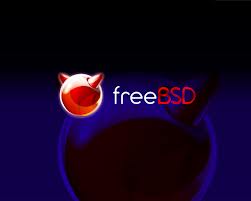Difference between FreeBSD and Linux
Key Difference: FreeBSD is a Unix like operating system. It is based on BSD (Berkeley Software Distribution) series of Unix variants. Linux is also an open source operating system which is modeled on UNIX. They are quiet same in performance. However, some differences occur in aspects like License, source availability, etc. FreeBSD is generally preferred as a web server whereas, Linux is preferred for the desktops.
 FreeBSD is a free and open source operating system which has its roots in Unix variants form Berkeley Software Series. It is widely popular for its modern and scale file systems. The development of this operating system started in 1993.
FreeBSD is a free and open source operating system which has its roots in Unix variants form Berkeley Software Series. It is widely popular for its modern and scale file systems. The development of this operating system started in 1993.
It has enhanced and grown during the twenty years of work. It focuses on performance and networking. Its Stack is based on the 4.2 BSD implementation of TCP/IP. It also provides various utilities for the management of ports and packages.
 Linux is also an open source operating system which is modeled on UNIX. Linus Torvalds wrote the initial version of Linux and posted on the internet in 1991. Since then, Linux has been growing with the help of collaboration from a number of people over the internet. It is a free and open source operating system.
Linux is also an open source operating system which is modeled on UNIX. Linus Torvalds wrote the initial version of Linux and posted on the internet in 1991. Since then, Linux has been growing with the help of collaboration from a number of people over the internet. It is a free and open source operating system.
The main components of Linux systems are kernel, system library and system utility. Kernel is the core component of Linux and deals with all important activities related to the operating system. System Library is used to access kernel’s feature. System Utility has been designed for dealing with specialized and individual level tasks.
FreeBSD comes with a BSD license which even allows distribution of binary only source. On the other hand, Linux GPL license is bit strict than that of FreeBSD. Linus Torvalds remains the controller of Linux kernel, whereas FreeBSD code is not controlled by a single user. However, it is controlled by many people. On the basis of maturity, BSD systems boast of having a better reputation for reliability. BSD is capable of executing Linux binaries, whereas Linux cannot execute BSD binaries. Unlike Linux, FreeBSD has a central repository.
Comparison between FreeBSD and Linux:
|
|
FreeBSD |
Linux |
|
Definition |
FreeBSD is a Unix like operating system. It is based on BSD (Berkeley Software Distribution) series of Unix variants. |
Linux is also an open source operating system which is modeled on UNIX. They are quiet same in performance. However, some differences occur in aspects like License, etc. |
|
Company Developer |
The FreeBSD Project |
Community |
|
License |
BSD |
GPL |
|
Initial Release |
1993 |
1991 |
|
Kernel Type |
Monolithic with dynamically loadable modules |
Monolithic (Linux kernel) |
|
Source Availability |
Necessary sources accompany FreeBSD to recreate the base system |
Mostly developed by open source licenses |
|
Integrated Firewall |
IPFW2, IPFilter, and PF firewalls. |
Netfilter firewall, normally managed with the iptables front end |
|
Nomenclature |
Uses a different name for each device |
Predefined names for each device type |
|
Version Representation |
Kernel has two numbers, first for the major version and second for the minor new releases |
The first number represents the major version number—at the moment this is ‘2’; the second number indicates if it is a stable (even number) or development version (odd number); last number is patch number |
Image Courtesy: freebsd.org, scienceblogs.com









Add new comment